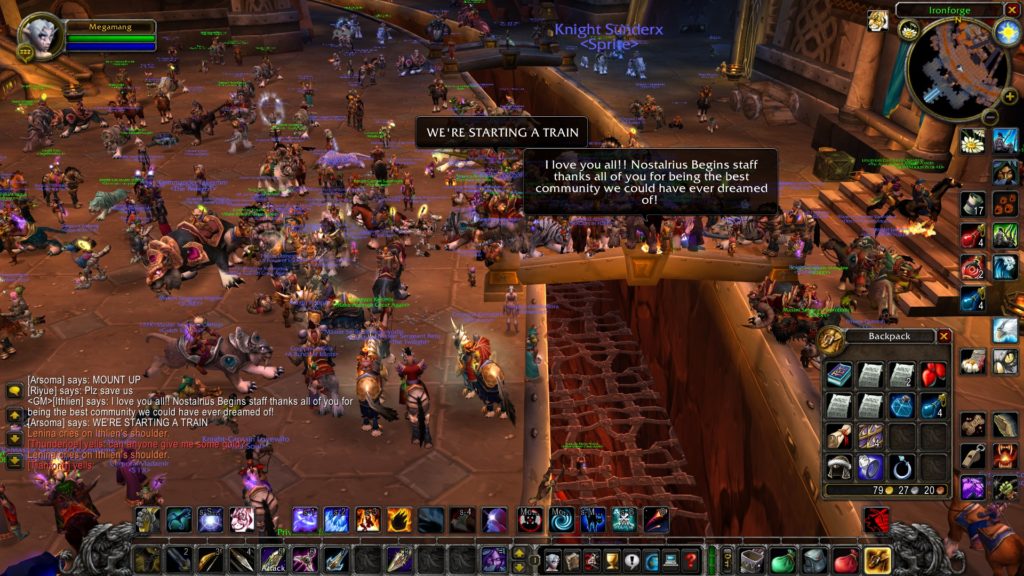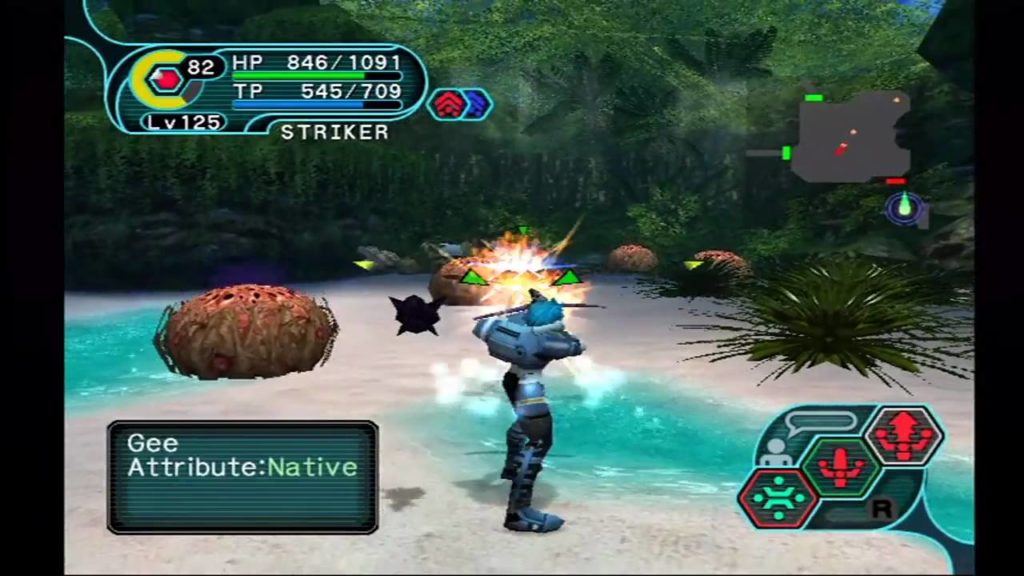Last updated on May 11, 2016
Private servers came up quite a bit in recent weeks, mostly due to the closing of Nostalrius. For those who don’t know, Nostalrius elicits “nostalgia” for the old days of World of WarCraft – specifically the time of 40-man raids, tons of grinding, and bosses that required a heck of a lot of coordination. I have no idea whether Battlegrounds are also a feature, but I assume 40 v 40 Alterac Valley games were also a thing (I remember those games never ended; you would just end up requeued in one). For some, it’s a backwards look into a terrible time in the game’s lifespan (i.e., Blizzard). For others, it’s a portal back to what was, before Blizzard change the game radically to the point where it’s unrecognizable in its current state (Warlords of Draenor sucked, in case you were wondering).
I understand the appeal of such servers that hearken back to old versions of the game! I, too, remember doing 40-man raids and enjoying them immensely. At the same time, I really loved some of the later expansions, and think that Blizzard’s team have substantially improved the game from those days. So, why can’t we have our cake and eat it too? I’d be up for trying “the old game” again, just for the sake of comparison.

But, Blizzard doesn’t think so – or, at least, didn’t think so – for a very long time. They were adamant that we wouldn’t want to return to that game. Who knows if they were right or not, but apparently enough people wanted such a thing that Nostalrius grew to one million registered users. That’s enough visibility to obtain a cease and desist letter, anyway, and so it was that Nostalrius fell to the might of Activision-Blizzard’s lawyers. In the words of the Blizzard moderators:
Why not just let Nostalrius continue the way it was? The honest answer is, failure to protect against intellectual property infringement would damage Blizzard’s rights. This applies to anything that uses WoW’s IP, including unofficial servers. And while we’ve looked into the possibility – there is not a clear legal path to protect Blizzard’s IP and grant an operating license to a pirate server.1
We explored options for developing classic servers and none could be executed without great difficulty. If we could push a button and all of this would be created, we would. However, there are tremendous operational challenges to integrating classic servers, not to mention the ongoing support of multiple live versions for every aspect of WoW.
Of course, Nostalrius’s creators are meeting with Blizzard to possibly sort this out and actually create these so-called “legacy servers”. But what about games without that kind of visibility whose servers shut down forever? How can those people ever play their favorite game again? World of WarCraft is, clearly, still a successful game that generates hundreds of millions of dollars of revenue for Blizzard, but what about those games that simply don’t have servers at all? That’s where things get complicated, in the legal gray areas.

I wouldn’t call it piracy, but abandonware might be accurate. The game, as it was, can’t actually be played unless a new server is created that performs the same function as when the game had official servers. I’ll take the case of Phantasy Star Online, just for example. Tons of private servers popped out of the woodwork for the game; it’s not just for the last PC release, Blue Burst, but also for any version of the game released on consoles. If you own the game on some platform, it’s very possible to play the game online with other people. Remember, the people in question own the title in some form, and have simply created a means to play the game online, as the game’s title states. With some versions of the game, online play is completely impossible, as in the Xbox release, but the vast majority of Phantasy Star Online copies can now be played online for free – exactly as the developers meant.
I mention this game in particular because, surprisingly, Sega’s done nothing to any of these servers which have remained up and running for many years now. One would imagine that a big corporation would swoop in to protect their intellectual property, but they’ve been surprisingly lax in that regard. Maybe it’s due to the age of the game, or maybe they just don’t care about Phantasy Star Online in the west (Phantasy Star Online 2 has yet to see an official Western release, from what I can tell), but that’s pretty striking.

I should mention another major difference: Blizzard has a massive Terms of Service Agreement when you sign onto World of WarCraft that dictates what you can and cannot do with the software you own. Most games in the MMORPG space contain similar “contracts” (they can be legally binding, though not always) which detail the software “contract” (you don’t own the game, you’re licensing it) you make with the developer. Private server, unsurprisingly, are included in this. Sega’s game contains no such requirements, given that it came out in 2000 when broadband and Ethernet connections were a foreign reality on both sides of the Pacific. I’d compare the game more favorably to Diablo II when that game released than an MMORPG, but Sega did charge money for a Hunter’s License at some point ($9 dollars a month USD).
Again, I will point out that none of these factors justify the use of a private server. Just because Sega says nothing, doesn’t mean they won’t do something to protect their intellectual property. They could just as easily send a cease-and-desist to these people. Then again, the player population certainly doesn’t justify the kind of legal action that Nostalrius warranted by any means (probably less than an hundred people on each server at peak hours doesn’t exactly spell “lost revenue” to Sega, apparently). The servers would cost Sega an arm and a leg to keep operational, so when private enthusiasts do it out of their own free time, they don’t really complain. But, Sega is certainly within their legal means to shut them down at any moment.
What’s the solution here for people who don’t want to break the law, and want a morally clean conscience (other than, say, not using them)?
